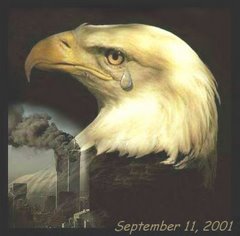Buried By The News.

The deaths of civilians in Hyderabad is not a media priority.
By Jonathan Foreman
This weekend saw an extraordinary demonstration of strangely selective “news value” in the British and U.S. media. On Saturday night a pair of synchronized bombs ripped apart two crowded nightspots in Hyderabad, India. The explosions killed 42 people and wounded at least a hundred more. Since the attacks, police have found and diffused 19 more bombs at movie theaters, bus stops, and pedestrian bridges.
As far as I can tell this slaughter was not important enough to make the front page of any major newspaper in Britain or America. Why? Well, one thing is certain: It is not as if bombs go off every day in Hyderabad, which happens to be one of India’s key industrial cities. Moreover, it is not as if India is not on the world’s media map these days.
Indeed the 60th anniversary of Indian and Pakistani independence has generated vast amounts of coverage on both sides of the Atlantic. Everyone from Time, to the BBC, to the Financial Times (and of course, the most recent issue of NR’s “The Week”) has commented on the festivities, as well as the triumphs and trials of this nascent democracy. And yet, within the fortnight of such coverage, this case of paradigmatic anti-democratic hostility is relegated to mid-paper triviality.
Certainly, the bombing was not one of those quotidian subcontinental disasters— train crashes or ferry sinkings — in which unfathomable numbers of South Asians die. Rather, it was a terrorist bombing of the cruelest kind, one akin to the slaughter of holiday makers in Bali, one aimed purely at innocent civilians. The elected setting was a wealthy, peaceful, economically important metropolis (not confusing, hard-to-get-to Kashmir, or one of those remote Indian provinces convulsed by Maoist insurrection or ethnic insurgency.)
Furthermore it was a terrorist incident with genuine international implications. Indeed it could have a poisonous effect on already tense relations between two hostile, nuclear armed-states: Indian officials have blamed Pakistani intelligence for the attack. So it’s not an unimportant or a boring story, or one without wider implications. And these days there are plenty of readers and viewers in America and Britain who come from that part of the world and who care about incidents like this.
Why then has it been relegated to the inside pages along with the death of former French premier Raymond Barre, and the stalling of war crimes trials in Liberia? One plausible explanation for the minimal coverage is that the Western media’s pace-setters somehow regard murdered Indians as of lesser value than dead people of more favored ethnicity. Not just less important than Americans, Europeans, and Japanese, but less important than Palestinians, Iraqis, Israelis and so forth. If 42 people were killed in the West Bank you can be dead sure it would be front-page news.
But I suspect that the true answer follows a different line: it is simply that the men and women at the front of the media herd have invested their resources in certain places, for reasons that are a mixture of politics and practicality. Everywhere else falls into the category of backwater.
Hyderabad is backwater simply because it is far away. Editors don’t have hundreds of reporters on the spot waiting and hoping for action. More importantly, they don’t have any pre-packaged opinions of causes or solutions to whatever problem prompted the bombing. They don’t vacation in Hyderabad, and they don’t understand that South Asia is strategically at least as important as Israel/Palestine.
It’s too bad for the people who were blown up there and for the relatives who mourn them, and it’s too bad for the cause of good journalism.— Jonathan
Foreman, a former film critic for the New York Post, was an embedded reporter with U.S. troops in Iraq in 2003 and 2005.
Dean Sphere: Related Content










































